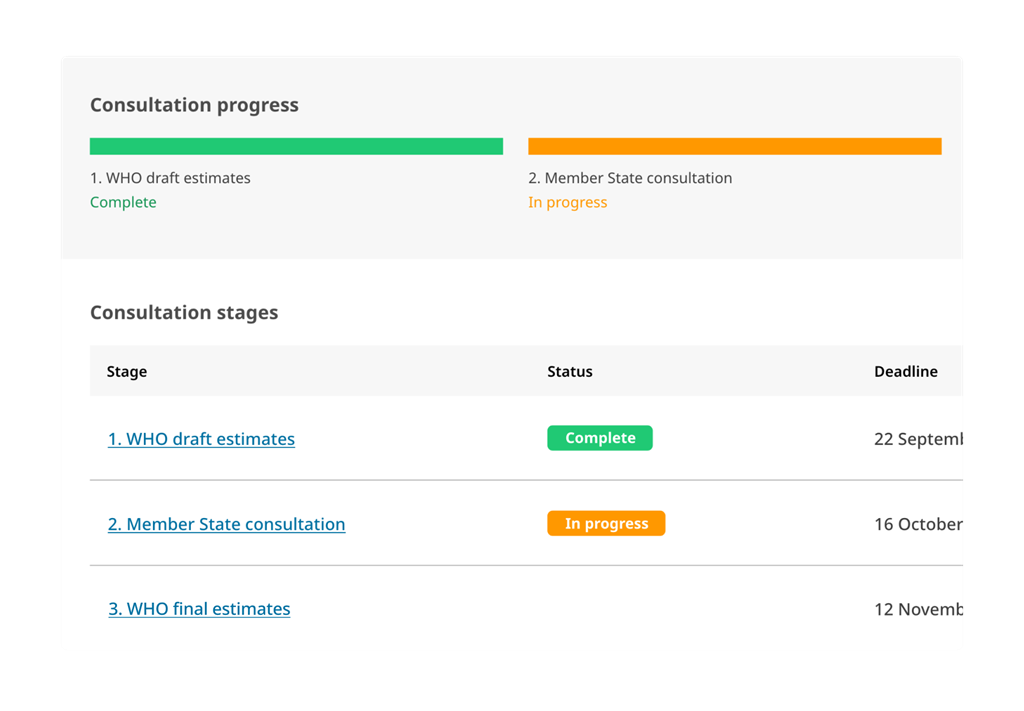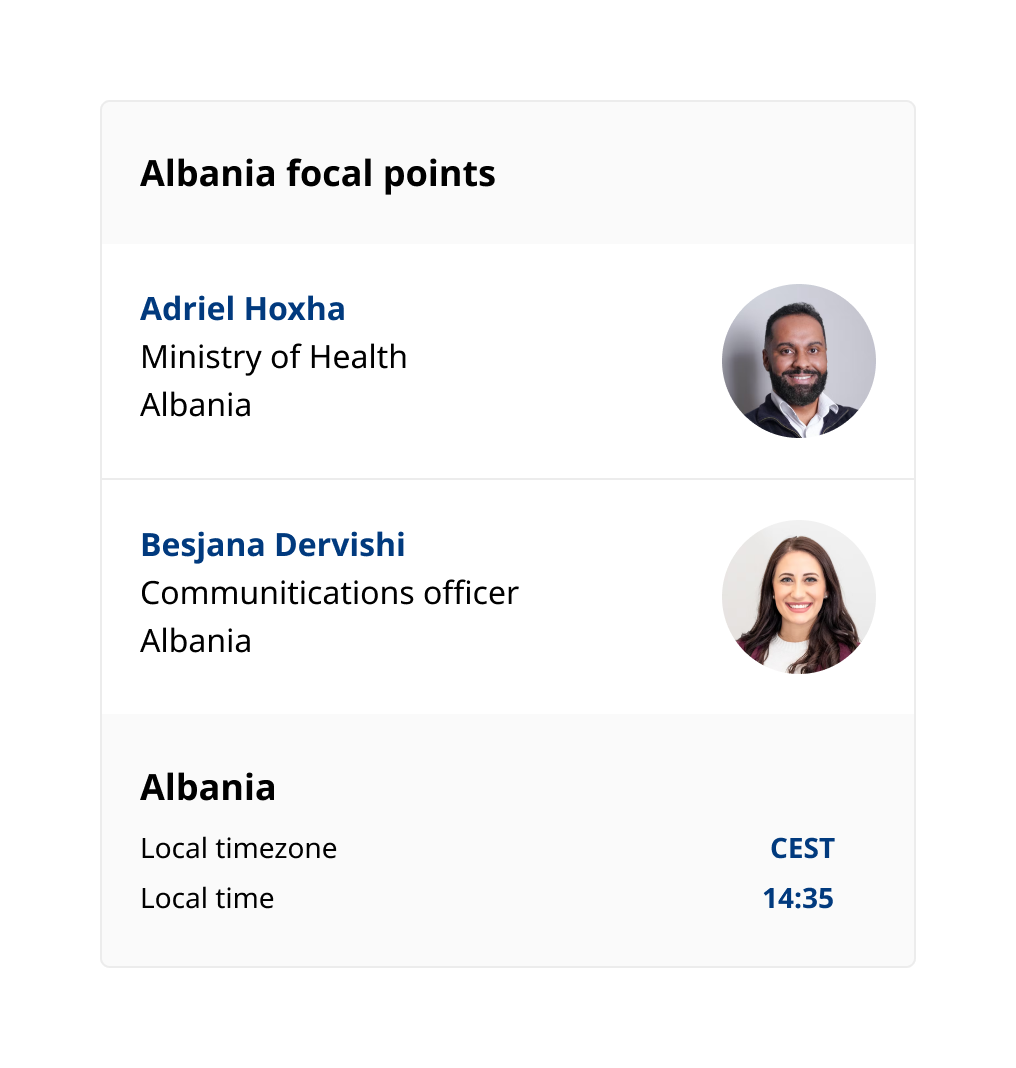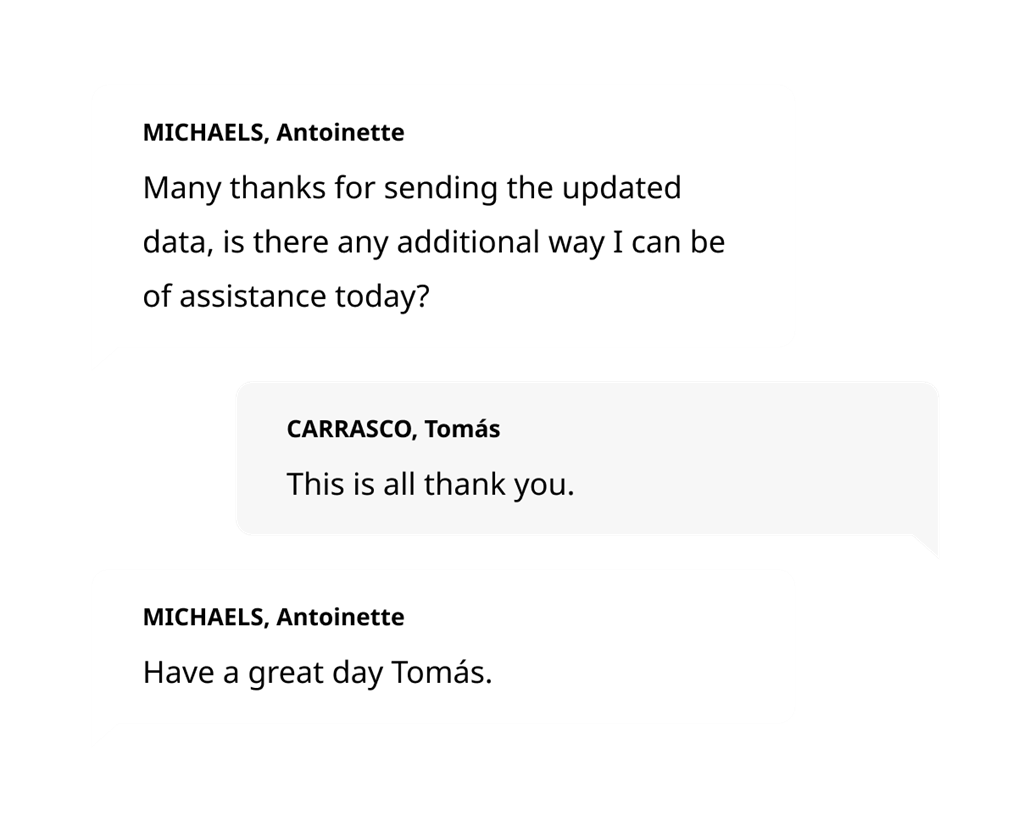Country Portal
A two-way portal facilitating data exchange and communication between Member States and the three levels of WHO - headquarters, regions and country offices.
The Country Portal creates country-specific engagement spaces for Member States and all three-levels of WHO to exchange files and discuss WHO data requests.
The portal provides a space for bi-directional data exchange, management and consultation. Its current focus is the health estimate verification process, often referred to as Member State consultations, which are a cornerstone of WHO's data principles and commitment to uphold Member States' trust in data. Scoping is underway to widen the focus to include data collection management that will further improve efficiency and reduce burden for countries.
Features
User access
Each globally consulted data product engages 200-600 Member State focal points as well as 200+ WHO (and UN partner) focal points. Country Portal simplifies the process for user access and permissioning across three geographic levels (country, region, and global).
File sharing
Tabular data files often form the backbone of analyses, but information comes in all file formats. Country Portal makes it simple to securely transfer survey reports, health information system exports, and other data files for analysis. We further enable metadata sharing as well as simplify downstream processing via integration with the Data Lake.
Facilitating conversation
Country Portal creates secure conversational spaces facilitating discussions about source data and methodology.
Multilingual
Country Portal supports the sharing of guidance and files in the six official UN languages (Arabic, Chinese (simplified), English, French, Russian, and Spanish) so that data is accessible and usable.
Process monitoring (analytics)
Each Member State is unique with specific needs and varying data maturity. Country Portal monitors where each country is within the engagement process to make it easier for WHO to respond to the variety of requests.



Objective
Country Portal creates an environment that is centered around Member State user needs, streamlines the data request process, and demonstrates added-value through the tracking and analysis of data requests across the programmatic work of WHO.
We provide an opportunity to facilitate policy compliance and good practice around Member State data, such as with GATHER (the Guidelines for Accurate and Transparent Health Estimate Reporting).
About data at WHO
WHO ensures the timeliness, reliability and validity of measurements, ensuring comparability of data and allowing the world to track trends, progress and impact.
